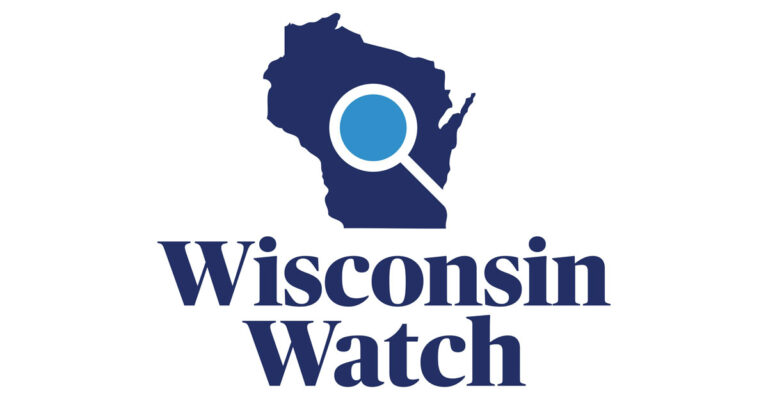The Capitol Report, produced by WisPolitics.com — a nonpartisan, Madison-based news service that specializes in coverage of government and politics — provides a weekly analysis of issues being
debated in Wisconsin state government. It is underwritten by the WNA and produced exclusively for its members. WisPolitics President Jeff Mayers is a former editor and reporter for the Associated Press and a former political writer for the Wisconsin State Journal. The WisPolitics logo can be downloaded here.
Editor’s note: This column is provided to Wisconsin Newspaper Association members by WisPolitics.com. Proper attribution to WisPolitics.com is appreciated. Also, please publish the tagline that is included at the end of the column.
GOP donors give big to party after state campaign finance changes
Mike and Mary Sue Shannon each gave the maximum contribution to Gov. Scott Walker’s campaign in June 2017.
The same day Walker’s campaign reported the $20,000 donations from the Denver couple — both are UW-Madison graduates, and Mike Shannon went on to found a multibillion-dollar private equity firm — the state GOP registered $125,000 donations from each of them. Those donations wouldn’t have been allowed under previous Wisconsin campaign finance laws that were first struck down by the courts and then affirmed by a GOP overhaul of the regulations.
The Denver couple wasn’t alone in taking advantage of the change.
A WisPolitics.com check of donations found 29 donors since Jan. 1, 2015, who contributed a combined $3.3 million to the state GOP after maxing out to Walker. All but three of those contributions were at least $10,000, and more than half of the $3.3 million came from just three donors: Beloit businesswoman Diane Hendricks and Illinois business couple Dick and Elizabeth Uihlein.
Wisconsin didn’t previously cap contributions to state parties. But an old restriction limiting donors to an aggregate of $10,000 in contributions to campaigns and committees per year acted as a de facto cap. That annual aggregate limit was thrown out by a federal court in September 2014; and when GOP lawmakers overhauled campaign finance laws a little more than a year later, they didn’t include any restrictions on the size of donations to political parties.
Matt Rothschild of the Wisconsin Democracy Campaign, which lobbied against the GOP campaign finance bill, said including a cap on donations to political parties of $10,000 would have reflected the intent of the old law. In failing to do so, he said, they made a “mockery” of trying to limit the influence of large donors.
The GOP package also doesn’t restrict how much parties or legislative campaigns can transfer to candidates, meaning the Republican Party could funnel those six-figure donations to Walker. Since Jan. 1, 2015, the party has given the governor $74,664, with the largest donation $10,000.
“By tearing down the ceiling on contributions to parties, they’ve opened the door to super-rich individuals having an inordinate influence on who gets elected here, what laws get passed here, what policies get pursued here. That’s not democracy,” Rothschild said.
Hendricks, who has become a major donor in Wisconsin politics, maxed out to Walker for the cycle in June 2017 then sent donations of $500,000 to the state GOP later that month and again in April. Before hitting the $20,000 mark to Walker, she gave the party $700,000, pushing her overall contributions to the state GOP to $1.7 million since Jan. 1, 2015.
The Uihleins, meanwhile, maxed out to Walker in 2016. Elizabeth Uihlein gave the party $500,000 after hitting the limit to Walker, while Dick Uihlein contributed $250,000 after maxing out. He gave the party another $200,000 before writing the $20,000 check to Walker, pushing the couple’s total contributions to the party to $950,000.
Assembly Speaker Robin Vos, who spearheaded the rewrite of campaign finance laws, said he didn’t consider a cap on contributions to political parties in co-authoring the bill. The Rochester Republican contended the old system weakened parties, because it encouraged some donors to turn to third-party groups instead.
Those third-party groups don’t disclose their donors, while political parties must. He argued the new system strengthens political parties while adding transparency.
“Why wouldn’t we want more people to give to a political party, which is disclosable, as opposed to a shadowy, union-funded third-party group that just does attack ads?” Vos told WisPolitics.com in a report published Aug. 24.
The Capitol Report is written by editorial staff at WisPolitics.com, a nonpartisan, Madison-based news service that specializes in coverage of government and politics, and is distributed for publication by members of the Wisconsin Newspaper Association.
Copyright © WisPolitics.com



